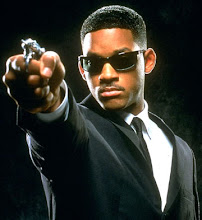For a working title and a preliminary abstract, let's go with:
------------------------------
From the Fringe: Ufology as Critique
Efforts to engage in the so-called "scientific" study of UFOs have traditionally had as their goal a certain rigor in analysis, a sharpness in classification, and an adherence to scientific standards that, taken together, attempt to convey the discipline with which the study has been conducted. The focus of this desire on the part of the UFO researcher is clear: the researcher wants to show to the respected scientist that this research has been in accordance with accepted scientific methods and that an appropriate skepticism has guided the work. Whatever results are left over should, in the mind of the Ufologist, constitute a scientifically sanitary group of phenomena that are worthy, by virtue of their anomalous nature, of further scientific investigation.
The desire to be taken seriously by the mainstream scientific community runs through the majority of significant publications on the topic of UFOs. At times, it bubbles up from beneath an author's words and surfaces, in the author's tone, almost as a plea for recognition. Rarely has Ufology intentionally cast itself as the Other to mainstream science; it is taken for granted that nothing need be done by Ufologists to marginalize themselves in the minds of their institutionally sanctioned counterparts. However, to do so presents an interesting opportunity for the field of Ufology. This opportunity arises from the fact that the possibility of critiquing mainstream science is inherent in the study of UFOs. To engage in such a study--to take seriously a topic that has little possibility of garnering the attention of the "serious"--is, in fact, to engage in such a critique.
Michel Foucault once described critique as "a means for a future or truth that it will not know nor happen to be, it oversees a domain it would not want to police and is unable to regulate" (Foucault, 25). Judith Butler expounded upon this conception by saying, "One asks about the limits of ways of knowing because one has already run up against a crisis within the epistemological field in which one lives...it is from this condition, the tear in the fabric of our epistemological web, that the practice of critique emerges, with the awareness that no discourse is adequate here or that our reigning discourses have produced an impasse" (Butler, 5).
In this paper, I will argue that Ufology--as a field of extra-institutional research which deals with the study of unknown objects that defy the explanatory scope of the institutionalized sciences--meets both Foucault and Butler's definitions of the project of critique. The object of Ufology's critique is what we might call "mainstream science," but a more precise target can be identified: the modern, scientific Subject. In his most extreme formulations of the concepts of discourse and discipline, Foucault held that human subjectivity was wholly constituted by discourse(s), by productive mechanisms of power/knowledge, and that the Subject was incapable of acting in ways not already possible according to the imperceptible contours of these discursive mechanisms. Judith Butler took up this generalized problem, first in her discussions of the performativity of gender, and later in a variety of analyses of "normativity" and "marginalization," in an attempt to theorize in what ways a socially-constituted Subject might enact their discursive constitution differently, thus allowing for the exercise of agency.
Using Foucault and Butler, I will show that the study of UFOs can be characterized as a practice of critique, the ultimate goal of which is this exercise of agency with respect to the role of institutionalized academic knowledge in constituting an ideologically-scientific Subject. For an ideologically-scientific Subject so constituted, I will argue, the serious investigation of the UFO phenomenon is a radical act of critique which pits the Subject against his or her own sense of rationality, and that agency is exercised at the point at which institutional, academic knowledge itself comes to be seen as suspect.
(shorthand bibliography for quotes used)
Butler, Judith. "What is Critique? An Essay on Foucault's Virtue."
Foucault, Michel. "What is Critique?"
----------------------------------
649 words, and I think it's a fair initial crack at what I've decided I'd like to do with this. My main problem was trying to keep from going too far in depth into how this analysis will be valid, which was getting me stuck hashing out Foucault and Butler all over again in my mind. I might need to pare down some spots and beef up others...matter of fact, I know I will. For one thing, I also want to use Paul Feyerabend's "Against Method," in which Feyerabend went after the failure of science to acknowledge that its prevailing ideological dominance had not come about due merely to its self-evident superiority over other ways of knowing.
Shorthand preliminary bibliography for the paper:
Butler, Judith. Gender Trouble.
---. Undoing Gender.
Feyerabend, Paul. Against Method.
---. Science in a Free Society.
Foucault, Michel. Discipline and Punish.
---. Power/Knowledge.
Comments and suggestions, please. I know I've got my paper here, but I need it to make sense to the outside world.
Subscribe to:
Post Comments (Atom)

1 comment:
I'm liking this. You should also take a look at the Preface to Foucault's The Order of Things.
Post a Comment